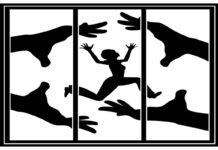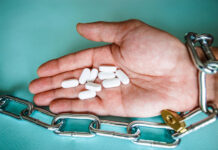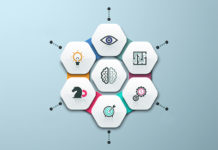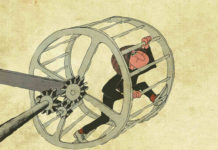Not Before Time: Lived Experience Led Justice and Repair
A landmark report has been released exploring possibilities for acknowledging the harms people experience in mental health systems.
Szasz and the Liberation of the “Mental Patient”
By setting standards of equality, competence, and accountability, Szasz worked for the liberation of the "mental patient.”
Making the Invisible, Visible
A memorandum submitted on the Children And Families Bill by the UK ADHD Partnership (UKAP) recommended that regulations issued to accompany the Children and Families Bill should include a requirement that “all children who receive two fixed term exclusions from school are screened for ADHD and, if appropriate, an assessment process for ADHD initiated.” The UKAP certainly appears to be a group the UK parliament should trust and, on the face of it, there is no reason that parliament should not adopt their recommendation. Except that the UKAP appears to be a front group for pharmaceutical company Shire, who manufacture the ADHD drug marketed as Vyvanase in the US and Elvanse in the UK.
From Self-Harm to Self-Empowerment: Liberation Through Words
In contemporary U.S. culture, people who intentionally hurt their bodies are called “insane.” We may starve ourselves or carve ourselves, taking to the extreme culturally-embedded norms like thinness in an effort to fight against marginalization or cope with internalized shame. But instead of obtaining the voice or place in society we yearn for, we are further ostracized.
The Elusive Emotional Wounds of Omission That Our Culture Inflicts On Us – and...
When we try to understand why we emotionally suffer, we can look to the ever-growing, reliable knowledge that traumatic, overt emotional wounds of commission can surely cause our emotional suffering via depression, anxiety and even extreme states.
Bring in the Peer!
Around the country, consumers of the public mental health system speak of ‘empowerment’, ‘recovery’ and ‘independence’ while being disempowered, and made reliant on a system that uses the word ‘recovery’ as only a buzzword. How can Peer provided services help?
Pandora’s Box
This morning I remind myself to point my eyes forward. I tend to want to re-do the past and try to make bad things...
Watchdogs or Show Dogs?
Beginning in the 1990s, a number of pharmaceutical and biotechnology companies began to set up bioethics advisory boards, ostensibly to obtain guidance about controversial ethical issues. Over the years, the ties between industry and bioethics have gradually grown closer, with companies setting up endowed chairs and hiring bioethics consultants. Yet very little is known about how bioethics advisory boards work. What exactly is their purpose? Do they prevent ethical wrongdoing, or do they provide ethical cover?
Behavior Therapy Helped My Patients Through Antidepressant Withdrawal
In behavior therapy, enduring psychological discomfort is an essential aspect of therapy leading to recovery. This may have implications for withdrawal experiences.
Pick Up a Pen, I Dare You
When I pick up a pen, I put down my fear. Sorry, they don't both fit into my hand at once. Meditation teachers often say the hardest part is getting to the cushion. The hardest part of writing is probably picking up the pen. So, pick up a pen, I dare you. Write even if you think no one will read it, even if you don't want anyone to read it.
We Need to Go Back to Our Roots in the Civil Rights Movement
I think the militant and committed people in our movement for human rights in psychiatry are not really aware of the damage that has been done to us by those who are responsible for smashing the national conference we controlled and most of the rest of our movement besides. People have grown used to our having no power at all, not being taken seriously, being completely shut out by the media. That isn't the way it was before 1985 and "Alternatives,” and the takeover of our movement by the “mental health” system.
A Milestone in the Battle for Truth in Drug Safety: Study 329’s Final Chapter...
Arguably the most controversial drug study ever, Study 329, concluded that paroxetine was a safe and effective medication for treating major depression in adolescents. It concluded that paroxetine was a safe and effective medication for treating major depression in adolescents, and it is still widely cited in the medical literature. Though GlaxoSmithKline’s promotion based on Study 329 resulted in the biggest fine in corporate history, the study remains unretracted.
Principled and Loving Support: The Greatest Gift We Can Give
"D" had attempted suicide a few days ago and remained in the hospital due to medical complications from the suicide attempt. I listened. I told D how much I cared and was ready to come and get D if that was what D wanted, and D could live in my guest bedroom for as long as D wanted. It’s been a few days since I made that offer – an offer I have never before made to anyone. I have clarified for myself the intent of my offer. I will soon share my intent with D, and writing this now is my effort to clarify my intentions
Our Letter to Lancet Psychiatry
This is the cover letter that Mad in America Foundation sent to Niall Boyce, editor of Lancet Psychiatry, requesting that the journal retract Martine Hoogman's study of "subcortical brain volumes" in those diagnosed with ADHD.
12 Mental Health Design Principles to Replace This Thing
One of the issues we face in mental health is that everyone knows the system is broken, but there is no replacement yet. So the question is, what are the mental health design principles to build a replacement? How do you build a functional mental health system that isn't disease-based? How do you make it robust, scalable and spreadable?
Thoughts on the Meaning of Neuroscience
For me there are at least four separate questions to be addressed. The first is whether neuroscience is capable of understanding human emotion and higher level cognitive experiences. The second is the extent to which that understanding - even if it is achievable - is critical to our being able to help people in distress. The third is whether is it is correct to assume, as many people seem to do, that if we come to some basic understanding of brain function as it pertains to core human emotion and suffering that this will automatically translate into treatments that are commonly thought of as "biological," such as drug treatment. The fourth relates to the limitations and relevance of studying the brain in isolation when we are constantly in interaction with our environment.
My Loss of Cultural Competence Among the Nacirema-Orue
I became an apprentice spiritual healer among the Nacirema-Orue in 1986 and was considered culturally competent to assess and treat community members by 1992. Then, the wealthy class turned toward producing and marketing complex and dangerous elixirs and synthetic herbs which tranquilize, sedate, or hypnotize the afflicted community member rather than working with self-hatred and self-revulsion. This new Nacirema-Orue healing theory presupposes that such individuals actually have damaged brains which these elixirs correct. I’m writing this blog post because I’m afraid of being made invisible.
My Response to Dr. Pies’ Response
A "little white lie" is an inconsequential falsehood, told to avoid causing embarrassment or hurt. So the question becomes: did Dr. Pies believe, or argue, that the chemical imbalance hoax was an inconsequential falsehood, designed to shield individuals from embarrassment or hurt? Of course, I have no way of knowing what Dr. Pies believes. Nor, to the best of my recollection, have I ever speculated on such matters. But I do know that he has argued that the chemical imbalance theory is an inconsequential falsehood designed to shield individuals from guilt and self-blame.
Shock Device Safe As Eyeglasses? 89 Days to Say No
We now have only 89 days to respond to Docket No. FDA-2014-N-1210. Tell the FDA no to the down-classification of shock devices. Tell the FDA exactly how subjective and damaging the terms “treatment-resistant” and “require rapid response” are, and how they fail as legitimate medical concepts. The known risks of electroshock should not be ignored because one has been psychiatrically labeled.
Lost & Found: Drowning The Mermaid, and Our Collective Power
We spend a lot of time in this community complaining about our lack of voice and power. We blame the news outlets and their coverage; so blind that it ignores our stories, and research that’s been readily accessible for years. We blame people like Representative Tim Murphy and his fear-fueled political agenda. We blame ‘Big Pharma.’ We blame ‘the system.’ We blame anybody but ourselves.
Theodoric of Arizona: State-Sanctioned Pharma-Based Pseudo-Doctor
I propose Theodoric’s Principle of Medical Advancement: “Medicine has advanced when the old standard of care becomes a joke.”
The Manufacture and ‘Maintenance’ of Oppression: A Very Profitable Business
There is a disturbing theme and common thread interwoven within the fabric of several recent news stories on opiate addiction. These stories should be of particular interest to all those people learning about and fighting various forms of psychiatric oppression. They reaffirm my strong belief that a profit-based system stands as an historical impediment to the advance of science, medicine, and the care of those people experiencing extreme forms of psychological distress.
My Operation Tomorrow: Mental Health Justice, Speaking Out for Our Rights, and Creative Maladjustment
For the past 42 years I have been a psychiatric survivor, and in the last few decades I have seen how working with the disability movement can amplify our voices. But I never expected the idea of trying to find my voice to become so literal!
From Picket Lines to Worry Lines
In Politics of the Mind: Marxism and Mental Distress, Iain Ferguson aims to use the marxist approach “not only to make sense of mental distress but also help us address and change the material conditions that give rise to it.” He begins by describing the ‘crisis in mental health’ that disproportionately affects the unemployed, poor, and oppressed.
The “Essential Principles” of Psychiatric Practice: More Psychiatric Cheerleading
In the May 2018 issue of Current Psychiatry, renowned psychiatrist and editor in chief Dr. Henry Nasrallah provides a list of 27 "principles of psychiatric practice," most of them self-serving platitudes. There's one principle he has omitted, if we are to consider his own career to be exemplary: Cultivate mutually beneficial relationships with pharmaceutical companies.

















